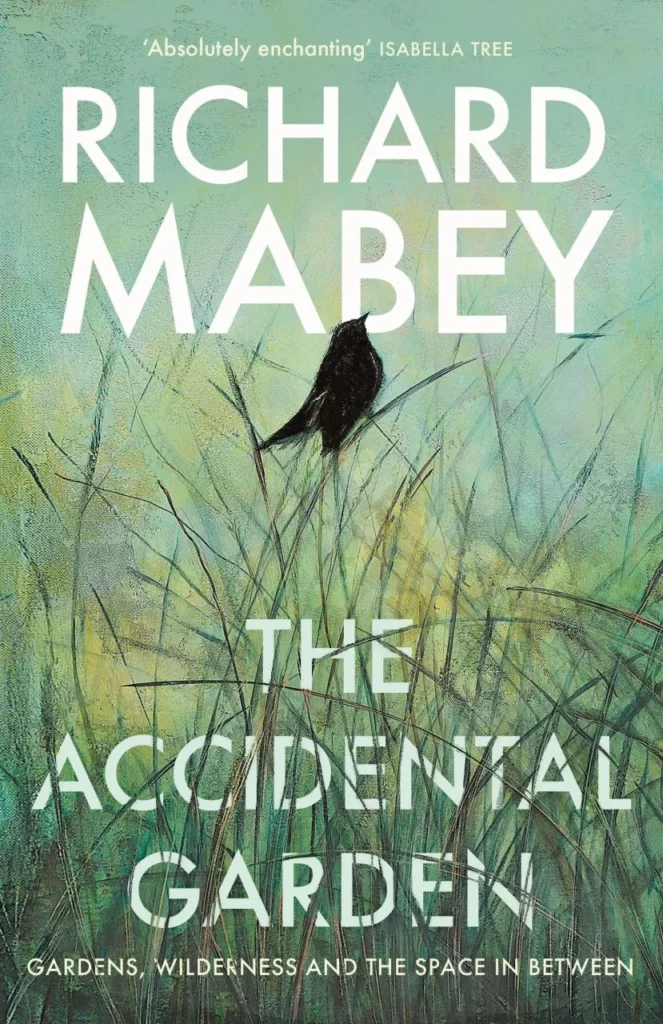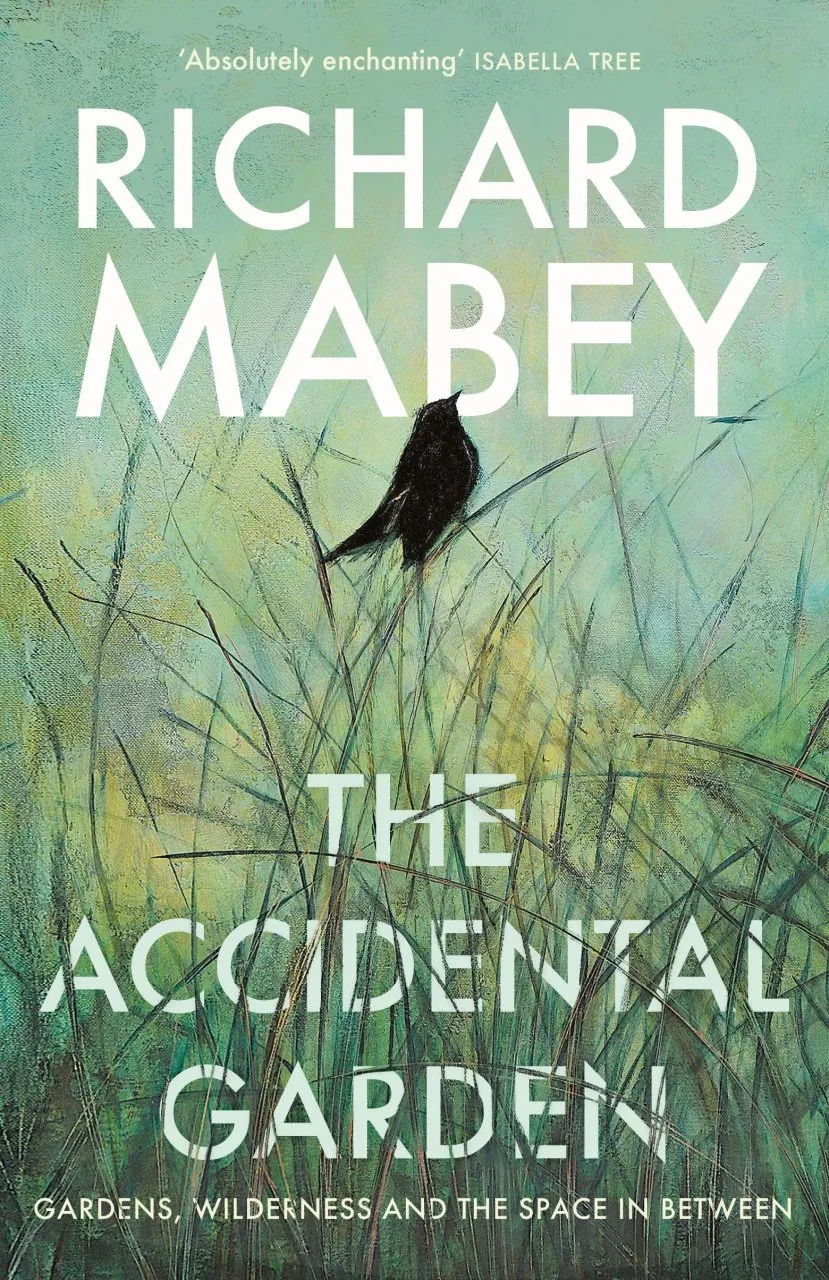The Accidental Garden opens with a quote from the poet R. S. Thomas, who once described the garden as ‘a gesture against the wild’. This is, Mabey suggests, a summary of the whole human project on planet Earth. ‘We still struggle to find a gesture in our relations with the natural world which is more like a hand-shake than a clenched fist.’
From this beginning we understand that Mabey’s garden is a microcosm, his observational hand lens has a larger purpose. The gardener can be a witness to the accommodations between the wild and the garden, an interpreter and a neighbour. And in his case, importantly, a scribe.
‘I can’t perceive the natural world without putting it into shapes and sentences… I am a gardener with word…’ He delights in the words used by favourite authors, the ‘keepings’ used by Geoffrey Grigson, for example, to describe plants in their proper place and company, and John Clare’s use of ‘taste’ as a faculty enjoyed by all living things. Mabey’s choice of words is equally exacting. Plants have the power to take you to other times and places: ‘they’re mordants, fixers of experience’. He learns about ‘the grammar of the Mediterranean flora’. Moorhen chicks ‘stalk the garden like small clockwork magpies’. At every turn his accidental garden, part nurtured and part wild, stimulates Mabey to search out the right words to conjure a place bubbling with vitality.
Mabey has been writing about the untidy fruitfulness of nature since his foragers’ guide, Food for Free, was published, in 1972. A plant which transports him back to childhood explorations of his local common, and a symbol of common land and the struggles of commoners, a scruffy commoner itself, is gorse. While writing at the Eden Project in Cornwall he noticed that a gorse bush had insinuated itself inside the Humid Tropics Biome. It has jumped biomes. Like the gorse bush, Mabey is adept at jumping categories.
The comings and goings of plants and animals which he observes form one of many threads in his narrative. His garden rambles, stick in hand (a symbol of his gentle, non-determinist interventions), take many detours. There is the history which belongs to a particular place – he describes how the local landscape leaks into a church, its iconography a portal into the medieval mind, its bestiary of carvings conjuring a once vast wetland which existed close by; there is garden history – the 19th-century Irish gardener William Robinson, who found delight in the beauty of wild flowers, deserves his spot in the sunshine; there are literary figures, diarists and poets – you would be surprised if Gilbert White and John Clare did not put in an appearance; there is memoir, a revisiting of previous chapters in his life, including visits abroad; and there is a philosophical vein which directly addresses the core of what gives meaning to life – wisdoms drawn from deep reflection.
This is a book of many parts which is satisfyingly hard to classify. Boundaries are there to be blurred, relationships reversed. Nature is also a gardener, its creativity as important as that of the human ‘owners’ – a construct he considers ‘an absurd privilege’. The accidental arrival of plants originally brought in by humans but now doing their own thing, mixing with native plants, has produced a fusion, rather like the comfortable, enriching accommodation that has settled between gardener and garden.
R. S. Thomas used to wander the lanes near me and visit the homes of rare plants with his naturalist friend Bill Condry as he searched for the right words for his sombre poetic reflections on rural life. Mabey’s impulse here is a more joyous one, driven by wonder at the life around him, delighting in the reflections which it brings, rejoicing in thought and language. Could the gorse bush, scenting the air in pulses, also be smelling him? Mabey is a standard-bearer for plant possibilities and for collaboration between gardener and nature – the welcoming handshake.


